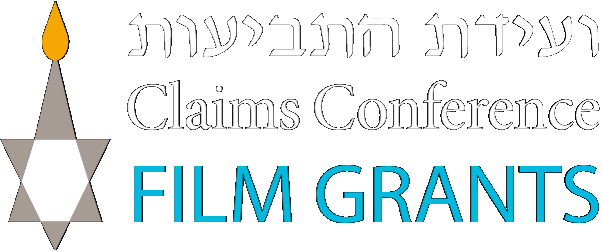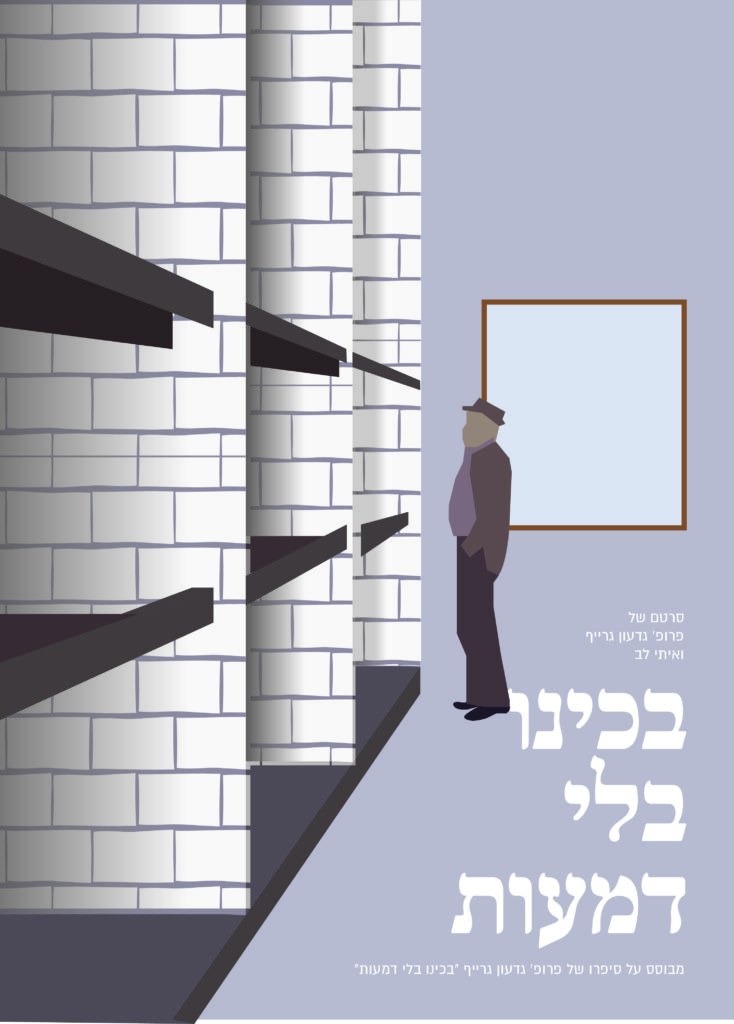The story of six Sonderkommando survivors going back to Auschwitz-Birkenau almost 50 years after they were liberated.
Synopsis
“We Wept Without Tears” tells the story of six Sonderkommando survivors going back to Auschwitz-Birkenau almost 50 years after they were liberated. In September 1993, Holocaust historian Prof. Gideon Greif went to the camp accompanied by the survivors, who reconstructed during the filming their “work” in Auschwitz, including the physical and psychological conditions they had to endure. The filmed materials were kept in archives for more than 20 years. None of the six witnesses is still alive today. The film includes Professor Greif’s commentary and historical background as a supplement to the testimonies of survivors.
About the Directors
Itai Lev, an independent film director, script writer and producer, graduated with honors from the Department of Film and Television at Tel Aviv University in 1997. His first film, “5 Minutes onWalk”, a dark comedy film, won the Jerusalem Prize for New Israeli Directors in 2002. In 2006, he directed the children’s film “Little Heroes”, which was distributed in cinemas in Israel and France; the film has won several international awards, including an award for best film at the Zlin Children’s Film Festival in the Czech Republic. “Sea Salt” (2010, Jerusalem Film Festival) was the first in a series of five films under the title Lost Weekends. He co-directed “We Wept Without Wears” with Prof. Gideon Greif.
Gideon Greif is an Israeli historian. He specializes in the history of the Holocaust, modern Jewish history, and the history of concentration and extermination camps, especially Auschwitz and Majdanek, with research on the “Sonderkommando” of Auschwitz-Birkenau.
Artistic Statement
In 1993, I had the profound and deeply humbling opportunity to accompany Professor Gideon Greif, an Israeli historian and Holocaust scholar, on a visit to Auschwitz, where we met six survivors of the Sonderkommando. These men had lived through one of the most unimaginable atrocities of the Holocaust, and their testimonies form the core of “We Wept Without Tears.”
The Sonderkommando were Jewish prisoners forced to participate in the systematic extermination of their own people. They were made to work in the gas chambers and crematoria of Auschwitz and other Nazi death camps, guiding victims to their deaths, undressing them, and ultimately disposing of the bodies. They were complicit in the genocide, not by choice, but by an extraordinary and monstrous coercion — the Nazis’ brutal insistence that their own survival depended on their active participation in mass murder.
In this film, we hear from six survivors who recount their unimaginable suffering, their forced role in the Nazi killing machine, and the moral and emotional consequences that haunted them long after the war ended. Their testimonies—first recorded in Hebrew, and now shared with a wider audience—offer a rare and essential glimpse into the realities of life in the Sonderkommando, as well as the haunting legacy of their survival.
The Sonderkommando were forced to carry out tasks that defy comprehension—leading people to their deaths, stripping them of their belongings, and disposing of their bodies. After the gas chambers were used, the survivors would drag the corpses out, burn them in the crematoria, and even crush the bones in an effort to erase all evidence of the atrocities. They had no choice. Resistance meant certain death.
Most of these men were selected by the Nazis for their physical strength, but their fate was sealed from the moment they were chosen. After a few weeks or months, they were often executed or replaced with new recruits. Few survived, and even fewer managed to recover emotionally and physically.
In the years following the war, the Sonderkommando survivors faced harsh moral judgments. Many were labeled as collaborators or perpetrators, despite the undeniable fact that they were coerced into their roles. For years, their suffering was overshadowed by the cruel stigma of complicity. However, with time, it became clear that these men were, above all, victims—forced into a position where survival often meant committing acts of unimaginable horror.
The survivors featured in “We Wept Without Tears” discuss not only the unspeakable violence they endured, but also the profound psychological trauma that haunted them. As they speak of their experiences, they attempt to make sense of the moral quandaries they faced, and the lasting scars they carry. Some rebuilt their lives, raising families, while others were left to struggle with guilt, shame, and profound loss. The legacy of their trauma has often been passed down to future generations, and the question of how to reconcile their survival with the brutal actions they were forced to take remains an unresolved and complex issue.
The film does not attempt to offer simple answers. Instead, it brings to light the deep human complexity of the survivors’ experiences, showing how their lives unfolded after the war—through different coping mechanisms, personal struggles, and moral reckoning. The film asks: What does it mean to survive such a hellish situation? How does one live with the burden of forced complicity? Can the line between perpetrator and victim ever truly be drawn?
Seventy-five years after these events, the question of moral judgment grows ever more difficult. “We Wept Without Tears” challenges us to consider: how would we respond in the face of such unimaginable evil? It calls us to confront the unthinkable and to reflect on the choices forced upon those who had no choice at all. The survivors of the Sonderkommando were not just bystanders—they were unwilling participants in the darkest chapter of human history, and yet they lived through it, carrying with them the consequences of their survival.
This film is a testament to their resilience and a stark reminder of the enduring legacy of the Holocaust. We owe it to the survivors to hear their stories, to understand the unbearable choices they faced, and to honor the memory of those who perished.
-Itai Lev
Festivals, Screenings, & Awards
Jewish Film Festival Berlin & Brandenburg (2022)






